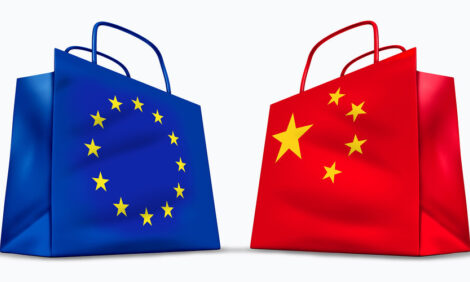



Working Together to Ensure Food for All
CHINA – In a panel discussion about food security at the China Development Forum this week, Cargill Chairman and Chief Executive Officer Greg Page said there is no need to fear a food crisis if the world acts collectively and reacts wisely.Mr Page emphasised five areas that are critical to achieving a wise food security policy.
He said the first area is to gain a better appreciation of the role of price.
"Too often, price is talked about simply as a potential contributor to inflation. Too little attention is given to the role of price in incentivising the world’s farmers to produce the calories in grains and protein that we all need," Mr Page said.
"Meanwhile, governments are faced with the challenge of balancing the cost of food for urban consumers with the need to ensure that farmers receive the right signals from the marketplace in terms of price.”
He added that using price to incentivise farmers while still meeting the need of urban consumers is the key to ensuring there are sufficient quantities of safe, affordable food for all.
Mr Page said: “The second is that we need to separate the conversation that we have about smallholders from subsistence farming. The signals that one would respond to as a commercial smallholder and the policies that they need to thrive are quite different from the ones that are required for subsistence farmers. So we can’t talk about them from a policy standpoint as a single entity if we are to have the ability to feed the world.”
Thirdly, Mr Page stressed that the world needs to have a very good conversation about the role of science, especially the acceptance of science in the production of food.
He said: “The world must produce the 70 percent more calories by 2050 on the same or less land while making food safer, generating less greenhouse gas, using less water and using fewer chemical inputs. All those achievements are available to us, but only if we gain the permission of the society to use science."
Mr Page used China as example in his fourth point - the criticality of comparative advantage.
“The experts in China smartly exploit the country’s comparative advantage. They strive to optimise the use of China’s soil resources for the production of starch that is produced from corn in which China enjoys a comparative advantage, and to import soybeans from Brazil, whose soil resources are better suited to soybean production. Both countries win. The producers in both countries win, and the consumers in both countries win.”
He also said that trust-based trade is critical if the world’s producers and consumers to realise the full benefits of comparative advantage.
“The fifth element of a wise global food security policy is that we all need to collectively assist Africa. If we are going achieve grain-based food security in the world, you can’t do it without Africa," Mr Page said.
"The resources are there, but challenges remain in terms of the right policy environment, the rule of law and the rule of private property. If the right policies and institutions are in place, all nature’s gifts are there for Africa to turn from an importer of calories to an exporter of calories,” he added.
Robert Aspell, Cargill China President, said: “Since Cargill started working in China in the early 1970s, we have been committed to the country’s agricultural development. In recent years we have worked in cooperation with the government water irrigation project to increase crop yields and increase farmer incomes. The projects have helped farmers in Henan, Sichuan and Xinjiang provinces, which have been affected by drought. ”
Mr Aspell added: “Cargill also is working to improve and modernize livestock feeding practices in China. Across the country, more than 3.2 million farmers have participated in Cargill’s productivity-enhancing programs on animal nutrition, sanitation, genetics and farm management. Through this training, Cargill helps farmers improve efficiency and raise more food safely and sustainably.”
TheCattleSite News Desk


